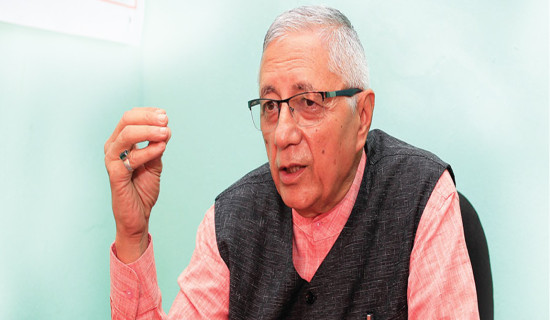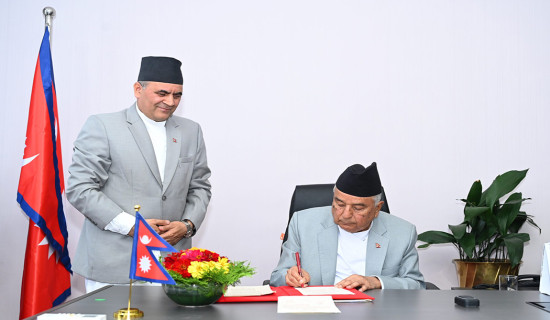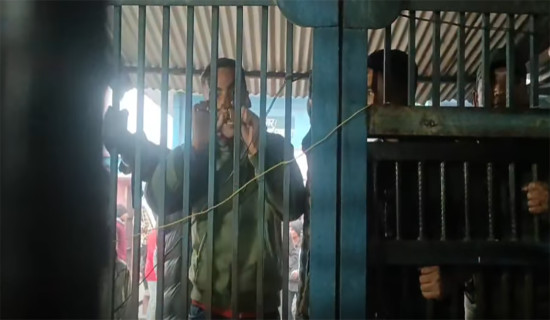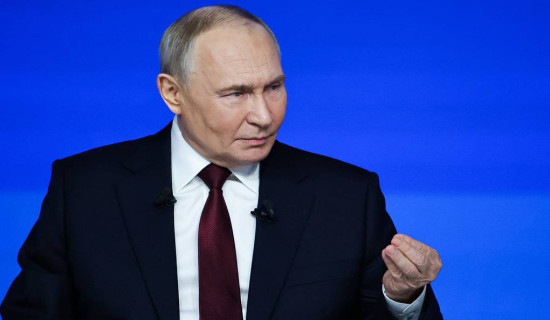- Saturday, 20 December 2025
Justice To Conflict Victims
Nepal’s peace process has often been touted as successful homegrown initiative though the United Nations was there to facilitate the management and rehabilitation of former Maoist combatants and their weapons. The 10-year-long Maoist insurgency found a peaceful landing with the signing of the Comprehensive Peace Accord (CPA) between the then CPN-Maoist and the government on November 21, 2006. Besides formally ending the armed conflict, the CPA was a milestone in carrying out the progressive restructuring of the state to resolve existing problems based on class, cast, region and sex. It has incorporated all normative values of democracy, human rights, governance system and drastic socio-economic reforms. The CPA led to the election to the Constituent Assembly that abolished monarchy and transformed Nepal into a federal democratic republic. The country saw two general elections for the three-tier government following the promulgation of the new constitution in 2015.
Although many provisions of the CPA were realised, its vital component – transitional justice (TJ) – has remained elusive even after 17 years of its inking. Over 17,000 people died, and many more were injured and displaced during the violent campaign. Similarly, hundreds of people disappeared, with their relatives still waiting to know about their exact status. As per the CPA, both the government and the Maoist party will make public the personal details of those who were subject to forced disappearance within 60 days of its signing. For this, Truth and Reconciliation Commission (TRC) and the Commission of Inquiry on Enforced Disappeared Persons (CIEDP) were created but these two commissions are unable to make headway in delivering justice to the conflict victims except for receiving and collecting the cases of disappearances and rights violations. Now top positions of both commissions are lying vacant. In the absence of effective law, logistic support and consensus among the major political parties, the commissions could not fulfil their responsibility in the spirit of the CPA.
The victims have lamented that the rights and justice of the conflict-affected, torture victims and the families of the disappeared persons have been denied. The major stakeholders of peace process have been divided over the content of proposed Bill to amend the transitional justice Act pending in the parliament. The rights activists, civil society members and some political parties have said that those involved in the grave human rights violations such as murders and rapes must not be granted amnesty. Critics argue that the Bill is lenient with the perpetrators. The conflict-affected communities have called for setting up a credible and victim-centric commission so that their rights to truth, justice and reparation are guaranteed with the implementation of the reparation-related short and long term programmes based on the necessity of the victims.
UN Secretary General António Guterres, who visited Nepal recently said that by nature, the TJ was a delicate and complex process and it had the greatest chance of success when it was inclusive, comprehensive and had victims at its heart. No doubt, the TJ will play a significant role in securing the enduring peace as it heals the wounds of the victims. The efforts should be made to ensure meaningful redress for all victims of rights violations. The TJ law under consideration needs to be devised bearing in mind the international standards and practice, Supreme Court's rulings and the demands of victims. Moreover, the political parties should not make the TJ issue a bargaining chip for power sharing, and instead show prudence and flexibility to conclude the remaining part of the peace process without further delay.















